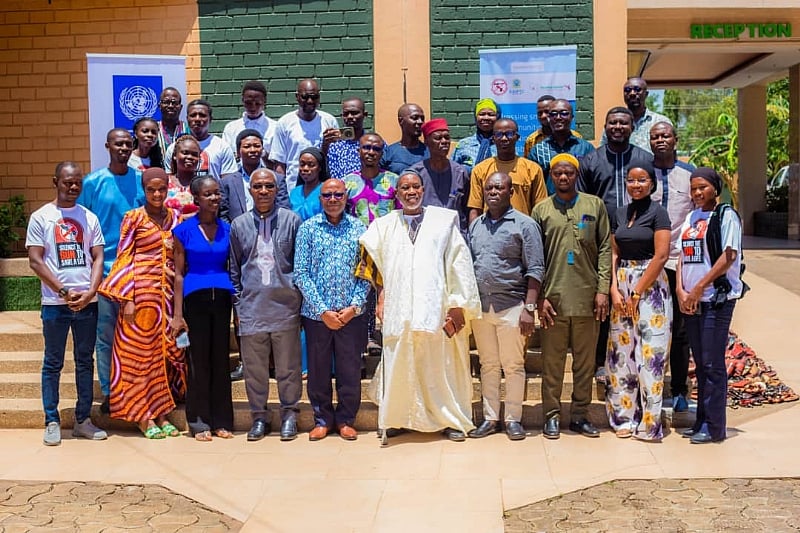Security and conflict reporting stands as a critical yet precarious domain within journalism, demanding an elevated level of professionalism, meticulous care, and unwavering responsibility from those who venture into its complexities. The potential repercussions of careless reporting in this sensitive area are far-reaching and severe, encompassing the incitement of retaliatory violence, the endangerment of innocent lives, and the emboldening of perpetrators of violence. This holds particularly true in the context of Ghana, where the delicate balance of peace and stability can be easily disrupted by irresponsible journalistic practices. The global landscape of security and conflict reporting presents formidable challenges, often requiring journalists with limited security training or contextual understanding to navigate the intricate nuances of these complex issues. Therefore, equipping journalists with the necessary skills and knowledge to report accurately and responsibly on matters of security and conflict is paramount.
The inherent sensitivity of security and conflict reporting necessitates a heightened awareness of the potential consequences of misrepresentation or sensationalism. Inaccurate or biased reporting can exacerbate tensions, potentially igniting reprisal attacks against individuals or communities. The dissemination of sensitive information without proper consideration for its potential impact can jeopardize the safety and well-being of vulnerable individuals, exposing them to harm or exploitation. Moreover, irresponsible reporting can solidify harmful narratives, perpetuating cycles of violence and hindering efforts to achieve lasting peace. Recognizing the pivotal role that responsible journalism plays in shaping public perception and influencing the trajectory of conflicts is essential for maintaining journalistic integrity and contributing to constructive dialogue.
Capacity-building initiatives, such as the media empowerment workshop on “The Delicate Balance of Security and Conflict Reporting,” play a vital role in empowering journalists with the necessary skills and knowledge to navigate the complexities of reporting on small arms and light weapons. These workshops provide a platform for media practitioners to gain a deeper understanding of the legal frameworks governing arms control, such as Ghana’s National Small Arms Bill 2023, and to enhance their ability to report accurately on matters concerning arms, ammunition, and explosives. By equipping journalists with the tools to report responsibly and ethically, such training programs contribute to informed public discourse and informed policymaking.
The detrimental impact of the proliferation of illicit small arms and light weapons is acutely felt in regions grappling with conflict, such as Bawku in Ghana. Easy access to these weapons fuels violence, exacerbates existing tensions, and undermines efforts to achieve sustainable peace. The human cost is devastating, leading to loss of life, displacement, destruction of property, and disruption of livelihoods. Ghana’s developmental progress is hampered by the persistence of violent conflicts, underscoring the urgent need for effective arms control measures. The availability of illicit arms transforms easily resolvable conflicts into protracted and intractable cycles of violence, hindering the restoration of peace and prosperity.
The partnership between civil society organizations like WAANSA-Ghana and international bodies like the UNDP plays a crucial role in advancing the fight against the illicit trade in small arms and light weapons. Through collaborative efforts, these organizations strive to raise awareness, advocate for stronger legal frameworks, and build the capacity of key stakeholders, including journalists. By fostering partnerships and engaging with the media, organizations like WAANSA-Ghana aim to create a network of informed and committed actors working towards the common goal of reducing the proliferation of illicit arms. The media, in its role as a disseminator of information and a platform for public discourse, plays a pivotal role in shaping public opinion and influencing policy decisions related to arms control.
The call for the swift passage of the National Small Arms Bill 2023 underscores the recognized need for enhanced governance over arms and ammunition in Ghana. This legislation represents a critical step towards strengthening arms control measures, improving accountability, and reducing the flow of illicit weapons. By advocating for the timely passage of this bill, media practitioners contribute to the creation of a safer and more secure environment for all citizens. The passage of the bill represents a significant milestone in the ongoing efforts to address the root causes of conflict and promote sustainable peace in Ghana and the wider West African region. It reflects a commitment to tackling the complex challenges posed by the proliferation of illicit arms and light weapons and highlights the importance of collaborative efforts in achieving lasting peace and security.


